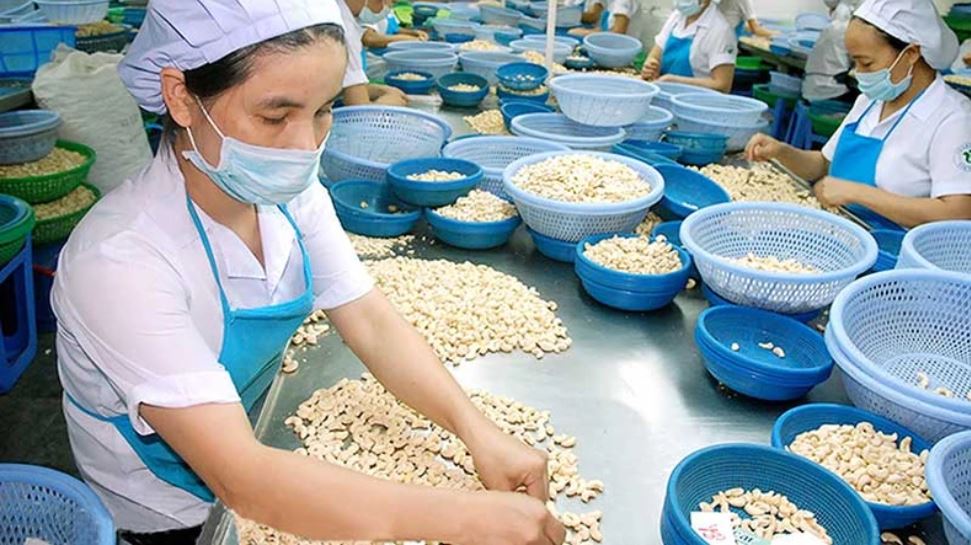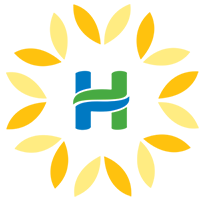Agricultures, Foods, News & Event
Exploiting the agricultural product market in the Middle East and Africa
In addition to traditional and key markets such as Southeast Asia, Northeast Asia, the European Union (EU), the US… Vietnamese agricultural, forestry and fishery products are being promoted to export to countries in the Middle East region. and Africa. Rice, coffee, and seafood are Vietnam’s strong export products to this market.

Vietnam’s agricultural and food exports to the Middle East region mainly focus on countries belonging to the Gulf Cooperation Council (GCC) such as the United Arab Emirates (UAE), Saudi Arabia, Kuwait, and Bahrain. , Qatar and Oman.
Currently, six GCC countries are members of the World Trade Organization (WTO). Meanwhile, in the African region, 45/55 countries have joined the WTO, which is very favorable for Vietnamese goods to penetrate deeply.
Advantages are being taken advantage of
Mr. Truong Xuan Trung – Head of the Vietnam Trade Office in the UAE said: UAE agriculture accounts for only 0.9% of GDP, so 80% of food and beverages are imported by the UAE.
The growing UAE population and tourists have led to an increase in consumption of products in general and the UAE is becoming an attractive market for agricultural and food exporters.
For Vietnam, in 2022, the group of agricultural products exported to the UAE will reach more than 190.6 million USD, an increase of 3.19% compared to 2021, of which fresh fruits and vegetables will reach more than 46.3 million USD. USD.
Mr. Tran Trong Kim – Vietnam Commercial Counselor in Saudi Arabia said that Saudi Arabia has up to 95% of its area covered in stone and sand deserts, and the climate is hot so it is impossible to cultivate agriculture. Most goods must be imported from abroad, of which agricultural products imported in Vietnam include: rice, seafood, coffee, tea, cashew nuts, and pepper.

Saudi Arabia has a great demand for agricultural products, Halal, organic foods, and fresh fruits and vegetables with imports from Vietnam reaching about 200 million USD/year. In addition, seafood imports from Vietnam cost more than 80 million USD each year.
Regarding import tax, rice products (fragrant rice, round grain rice) are currently exempted from import tax by Saudi Arabia. Other agricultural products, vegetables and fruits have import taxes ranging from 5-15% depending on the type.
For the African market, Algeria is a country with much potential for Vietnamese agricultural products to export.
Mr. Hoang Duc Nhuan – Vietnam Trade Counselor in Algeria said: In the first 10 months of 2023, Vietnam’s agricultural, forestry and fishery export turnover to Algeria reached 180 million USD, an increase of 55% over the same period. last year.
Main export products include coffee, reaching a turnover of 116 million USD, pepper 3.11 million USD, seafood products 3.35 million USD…
Coffee is a key export product that usually accounts for more than 60% of the total value of agricultural exports to this market.
Every year, Algeria imports from countries around the world about 130 thousand tons of coffee beans of all kinds, worth about 300 million USD. Coffee is imported in raw form (beans) and is roasted and processed at factories according to Algerian tastes, with the Robusta variety accounting for a large proportion (more than 85%), so Vietnamese coffee is There is still room for turnover growth in this market.
Many strict requirements need to be met
According to the Vietnam Trade Office in the UAE, the UAE is an open market, with almost no trade barriers, but competition is very fierce. Exported products must ensure food hygiene and safety, the proportion of chemicals and pesticides must not exceed the allowed level.
Specifically, the UAE maintains an extensive list of requirements for food packaging and containers with more than 20 Gulf Standardization Organization regulations covering a range of food contact materials.
There are also regulations on labels, such as labels must be printed in Arabic with the following contents: Product name (food name) in a prominent position on the label; country of origin; Barcode…
UAE Technical Regulation UAE.S GSO 9:2017 further stipulates that all food ingredients and irradiated foods must be identified on the packaging label and display the international logo. Besides, there are a series of Halal regulations for imported food and beverages.
Meanwhile, for the Algerian market, Vietnamese agricultural products for export also have to compete fiercely with goods from many countries, especially goods from Thailand, India, Pakistan (rice), Brazil, Indonesia, and Ivory Coast. , Ethiopia, Uganda, Italy (coffee) Tadjikistan, Spain (seafood)…
Not to mention, Vietnamese goods have to compete with goods of the same type from many countries that are geographically close and have free trade agreements (FTA) with Algeria.
In the Saudi Arabian market, exported agricultural and food products must be registered with the SFDA (Saudi Arabian Food and Drug Authority) and must be approved by the SFDA. SFDA not only regulates but also enforces very strict inspection of food hygiene and safety standards.
SFDA has the right to formally inspect the operating procedures of the competent authority in the exporting country to verify that the laws and regulatory systems in that country comply with Saudi Arabia’s food laws, regulations, standards, guidelines, directives and all relevant legal documents protecting animal and plant health of Saudi Arabia.
Mr. Nguyen Thanh Long – Vietnam Commercial Counselor in Iran (also Syria, Iraq) said: In the structure of imported goods, Iran imports agricultural products worth about 10 billion USD/year.
Recently, exporting agricultural products to Iran has not been exploited effectively because Vietnamese businesses lack information about this market.
In addition, Iranians focus on connecting directly with partners, so Vietnamese businesses that want to exploit the Iranian market and do long-term business should participate in international trade fairs and exhibitions in Iran. and related areas to connect and learn about the market.
“Exporting to Iran requires choosing products that do not directly compete with similar Iranian products, preparing orders well, regularly connecting with partners through channels, choosing and negotiating payment methods. Fit. If they are skillful in negotiating with the Iranians, Vietnamese businesses will have very good business opportunities” – Mr. Nguyen Thanh Long emphasized.
Source: https://baosonla.org.vn/kinh-te/khai-thac-thi-truong-nong-san-trung-dong-va-chau-phi-pPc8lEHIg.html

